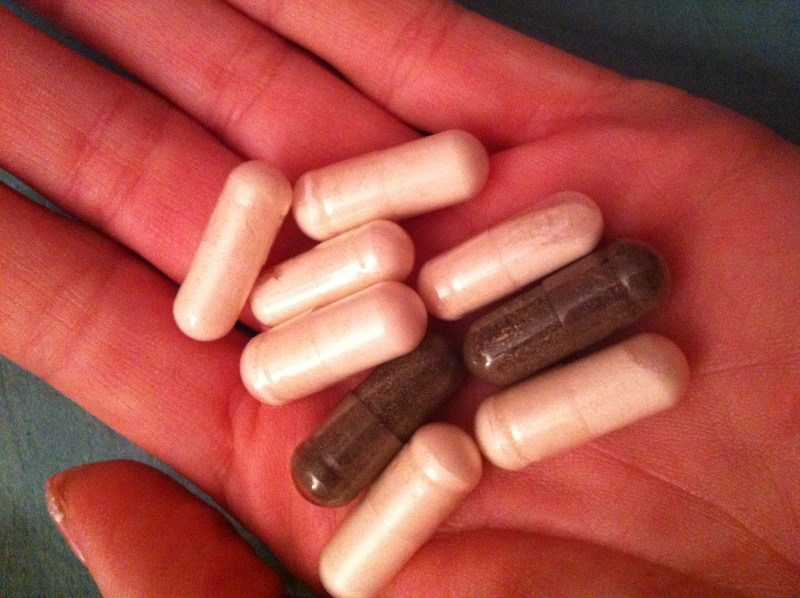Skin is the largest organ in the human body, and as such, is an indicator of the overall level of health and wellbeing in individuals. Probiotics are live bacteria and yeast that are beneficial to health, especially the digestive system. Bacteria is often thought of as something that causes disease. However, bodies are full of bacteria, both good and bad. Probiotics are often referred to as “good” or “helpful” bacteria, because they help keep the gut healthy. They contribute to total wellness, including skin health.
Moreover, probiotics contribute distinct advantages for skin disorders. It has already been proven that probiotics perform a role in skin heath, such as reconstructing atopic dermatitis, promoting the healing of scars and burns, rejuvenating the skin and strengthening the skin’s innate immunity. For those acne sufferers who have unhealthy guts, supplementing with probiotics, particularly lactobacillus acidophilus and the yeast saccharomyces cerevisiae, will often improve their acne.
Even eczema and psoriasis, which have been broadly assessed by the medical community, have been proven to be benefited by probiotics. Eczema is a condition that causes the skin to become itchy, red, dry and cracked. It is a long-term or chronic condition in most people, although it can improve over time, especially in children. Offering probiotics to infants has been proven to somewhat lessen the likelihood of infants developing eczema. Probiotics have also been shown to improve eczema symptoms in patients suffering from the condition. Psoriasis is another skin disorder, linked to inflammation, where oral probiotics have been proven to be beneficial.
If these disorders can be saved by probiotics, is it a far stretch to assume that those advantages can extend further, to aging skin? Gut bacteria elevates the human immune system. Having a strong immune system benefits all organs of the body, including the skin. There are about 100 million microbes (bacteria, fungi and viruses) that live on and in the human body. Skin is literally moving slowly with bacteria.
Presently, experts are assessing whether these interactions can diminish skin inflammation such as roscea and promote collagen production, as well as examining if tropical products that have probiotic content are more efficient for skin health than oral probiotics. Researchers have recommended that probiotics can benefit skin not only through the digestive tract, but also when given in tropical applications such as creams or lotion.
Wrinkle Prevention
Good bacteria in the gut can help eliminate the toxins and free radicals that can damage skin and cause early signs of aging. Introducing probiotics will not only flush out bodily toxins, but repair the harmful damage caused by free radicals, as well. It may offer some hope in slowing down the visible proof of all of those years of life experience.
Strengthen Skin Barrier
Probiotics have been proven to strengthen the skin’s barrier function. The skin plays as a physical barrier to safeguard the internal organs and keep out pathogens and other toxins. Not only are there microflora that live in the human gut, but there is also a skin microbiome, with friendly microorganisms for protection. The skin microbiome has been shown to protect against unfriendly bacteria, pollution and free radicals, all of which can accelerate aging.
Moisturize
Probiotics help skin to uphold moisture. Well-hydrated skin makes wrinkles less visible. As discussed above, skin cream containing streptococcus thermophilus was found to increase moisture in the skin of aging women.
Sun Damage
Probiotics can help protect skin against damaging UV rays that can cause premature skin aging and wrinkles. There has not been much research into this area, but what has been found is extremely promising.
Rosacea
There is no final medical consensus about what causes this condition, but it can become quite noticeable and cause distress to the person suffering from it. It typically appears between the ages of 30 and 60 and is much more common in women than in men. Eventually, it may even affect the shape of the nose, causing it to swell and get bumpy.
Studies have shown that probiotics, applied directly to the skin and taken internally can improve and prevent rosacea.
There are many conventional treatments that are commonly recommended, such as avoiding triggers that irritate the symptoms (for example: stress, spicy food, sun alcohol or heat), prescription medications (containing antibiotics or anti-inflammatory steroids or birth control pills) or IPL photo-facials. However, these treatments often do not provide any substantial relief.
Moreover, Kefir is a fermented milk drink, that can be easily and inexpensively made at home, which is extremely high in probiotics (higher than probiotic capsules), containing many strains of bacteria and beneficial yeasts. Many people claim that making a face mask out of kefir is very soothing to skin afflicted by rosacea. Kefir has the additional benefit of containing lactic acid, an anti-aging ingredient.
Oral Probiotics and the Gut Brain Skin Axis
Since the 1930’s, scientists have been discussing about the gut-brain skin axis. The approach behind it is that stress alone or stress in combination with a poor diet can affect the healthy bacteria residing in the gut, causing unfriendly bacteria to start to outnumber the probiotic bacteria that normally reside there. Eventually, the integrity of the gut lining is affected by this and toxins “leak out” from the gut and into the body, causing inflammation that can trigger rosacea.
Another line of evidence suggesting a connection between the gut and skin is the observation that probiotics improve skin conditions. Oral probiotics have been shown to decrease lipopolysaccharide, improve intestinal barrier function and reduce inflammation
The beneficial effect of probiotics on skin may explain why pasteurized, unfermented dairy is associated with acne, but fermented dairy is not. Orally consumed probiotics reduce systemic markers of inflammation and oxidative stress, both of which are elevated locally in those with acne. Oral probiotics can also regulate the release of pro-inflammatory cytokines within the skin.








